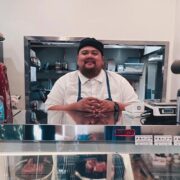
LAST December, Alvin Cailan put a down payment on the former Chego spot inside Far East Plaza in Los Angeles’ Chinatown without the immediacy, or a defined concept, to occupy it.
One possibility was a 12-seat steakhouse offshoot of his “Amboy” project — based on his childhood nickname referring to an American-born Filipino — with select cuts of meat paired with Filipino-inspired side dishes.
Cailan, the chef behind breakfast sandwich empire Eggslut, had been living in New York for nearly four years, running his first full-service eatery called The Usual at the Nolitan Hotel, while traveling across the country in search of the perfect hamburger as documented in First We Feast’s “The Burger Show,” a digital series on YouTube and Hulu.
“The plan was always to be bicoastal, having a presence in New York and LA,” Cailan told the Asian Journal in a recent interview.
Then, the pandemic hit, prompting the closure of his 125-seat restaurant that was built on the premise of “American comfort food cooked by the children of immigrants” and that had garnered glowing reviews, especially for its fried chicken, in magazines like The New Yorker and Vogue.
The move back to LA became a chance to test out another idea relating to the “Amboy” brand that would make sense under the safer at home order. What he brought home were lessons from New York on how to pare down operations, a stark contrast from his previous projects.
“As a chef, I realized I am more of a small batch guy who likes to have control over every dish that comes out and the prep involved,” Cailan said.
His footing in Chinatown’s Far East Plaza spans back to 2015 when he juggled running Ramen Champ on the second floor as Eggslut continued to attract buzzing lines at Grand Central Market a mile away.
A year later, he occupied a space on the ground floor for Unit 120, an incubator that housed pop-ups for fellow Fil-Am chefs like Isa Fabro’s IsaMADE and the Valencia brothers’ LASA, while operating Amboy as a takeout window for Filipino dishes and barbecue. (LASA permanently took over the space in 2017 when Cailan moved east.)
Despite LA’s closure of indoor dining and warnings of a looming meat shortage nationwide, Amboy Quality Meats and Delicious Burgers opened up in the plaza this past May as a “micro-steak boutique” reminiscent of the butchers and delis Cailan frequented in his adopted city.
“It’s the way of life back east to talk to someone who is knowledgeable about fish, cheese, bread or meat,” Cailan said, noting that LA’s Chinatown has several poultry shops, but limited options for raw meat.
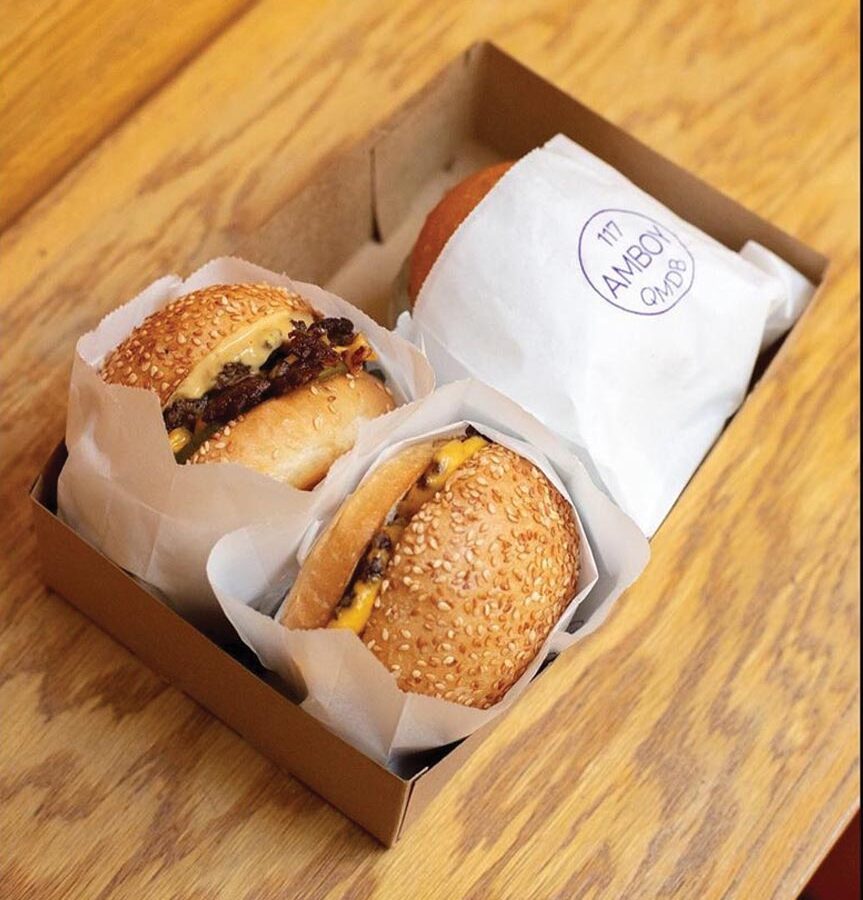
The shop, operating from Wednesday to Sunday, features meat sourced from smaller producers Cailan has forged relationships with over the years. The options range from the signature Amboy filet cut from the short loin ($11 per person) to a Brazilian-style picanha steak ($20/pp). There are also other items for purchase like a half dozen organic brown eggs or bottled dry rubs.
“We’re not like a full-scale whole animal butchery but we do carve out meat and we pull the best steaks that we can out of that…Being able to explain where the meat comes from and how to cook it is something you can’t get much of in Los Angeles,” Cailan said.
With his digital show and past pop-ups devoted to burgers, it was a seamless play to have variations of a grilled patty, cheese and toasted bun on the menu.
Bearing distinct “regional influences,” the four choices range from the no-frills Ordinaire ($8) to the DH Burger ($17) that packs a 10-ounce dry-aged beef blend, caramelized onions, provolone cheese, garlic confit mayo and burger pickles in between a toasted custom bun. Two types of bundles are available for those who want to cook and assemble burgers at home.
“We have a great selection of burgers for really any type of mood. That, I learned by eating at some of the best and longest-running burger places across the country. You can’t really just survive off of one kind of burger. You have to be flexible and cater to everyone and not just a trend,” Cailan mused.
On cultivating an Amboy
In reaching his level of celebrity, a cookbook was bound to be an imminent milestone in Cailan’s career. A deal was inked back in 2016 with the basis of “modern” Filipino recipes and his involvement in the national push for the cuisine’s visibility.
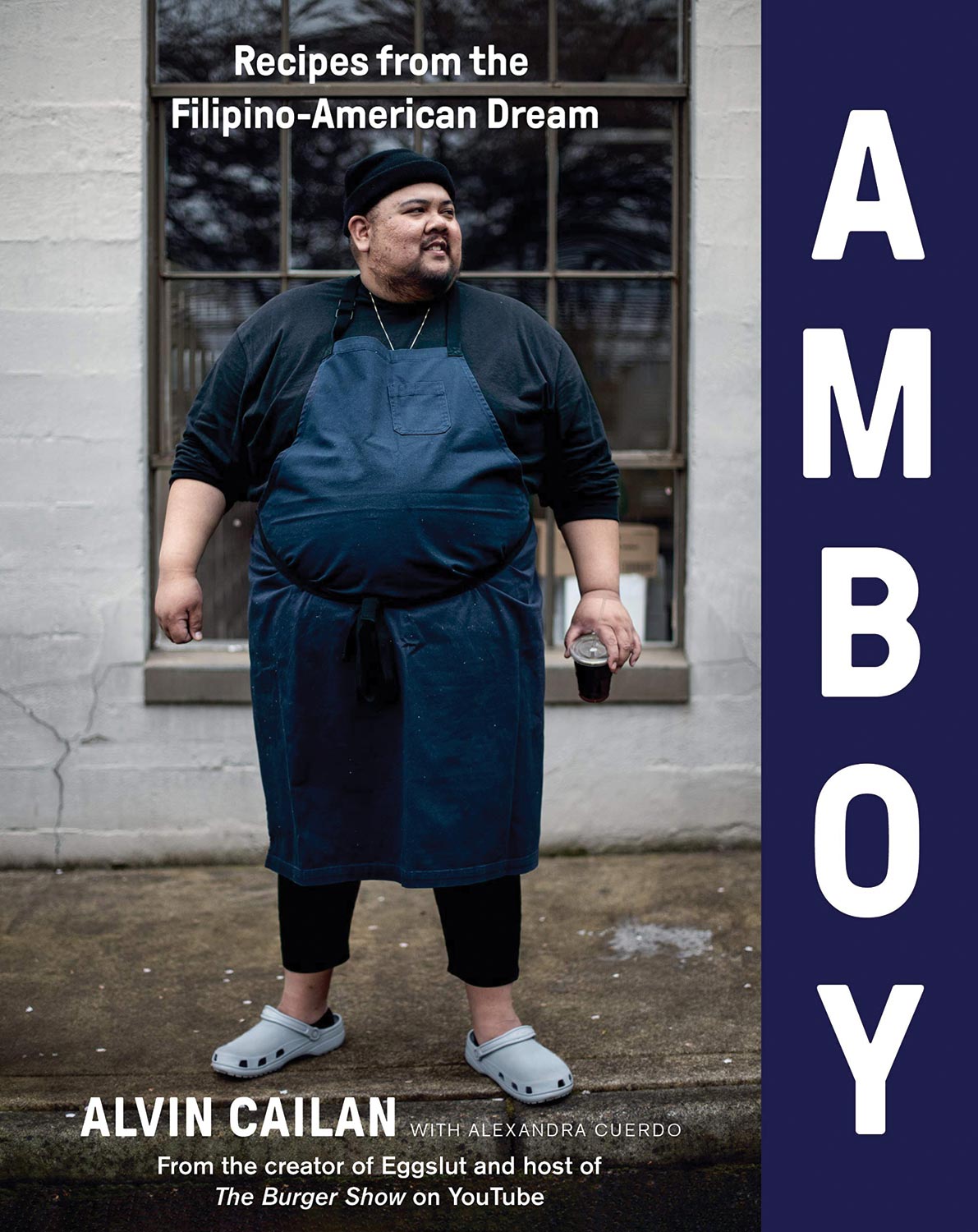
However, leaving LA and starting to outline a structure led to a self-reflection on how he came to this point, as a child of immigrants from the Philippines, taking that leap to attend the Oregon Culinary Institute and subsequently having to cut his teeth at various fine dining establishments.
“I wanted to talk about what I wanted to talk about, which was being a brown kid from a neighborhood where no one really makes something of themselves because the education system wasn’t funded properly,” Cailan said of growing up in Pico Rivera. “There are struggles in creating your own path to success that’s not traditional and the flavors and recipes that got me through those times.”
The final iteration is “AMBOY: Recipes from the Filipino-American Dream,” with co-author Alexandra Cuerdo, set to be released on August 25 by Houghton Mifflin Harcourt.
Cuerdo met Cailan at a 2015 NextDayBetter event themed around the burgeoning, next-generation Filipino food scene in LA. After the chef’s keynote speech, she privately pitched him the idea of a Filipino food documentary, which would later become “ULAM: Main Dish,” released in 2018.
“When Alvin came to me with the book, it was a slam dunk. After working with [him] on ULAM for five years, I have deep respect for him as a chef and creative. So I wanted to do it right,” Cuerdo told the Asian Journal. “Through the telling of Alvin’s unique story, I hope I can add another narrative to our history — a voice that is unapologetic and unafraid, that proudly celebrates our culture, and that paints a picture for the bright future of Filipino cooking around the world.”
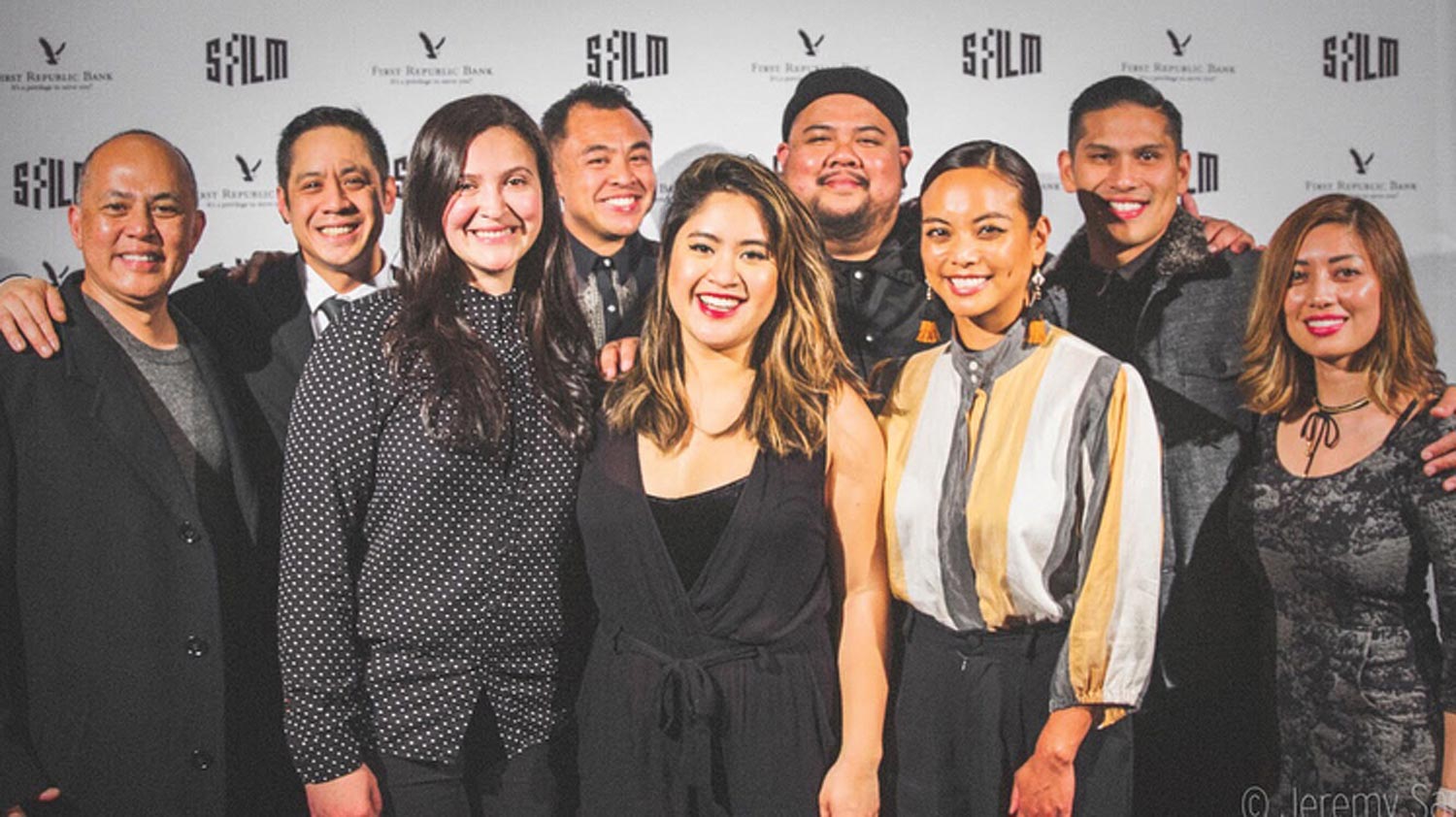
The 13 chapters tread between an autobiography and cookbook as anecdotes give a sense of how the recipes appeared in Cailan’s life, whether they were learned from his parents and lola to those creations served at his restaurants.
“It’s a culmination of what it means to be an Amboy — being Filipino and cooking modern or new American cuisine and really making a career out of it but always having the Philippines in mind and heart,” he said.
Early on in the preface, however, the authors caution that readers expecting the secret recipe behind the Instagram-worthy egg sandwiches will be “extremely disappointed.”
“But this is not a story about a shiny, subway-tiled egg restaurant and its campaign to be America’s next major food chain,” Cailan writes. (Though he rarely speaks now about the expansion of Eggslut, it’s worth noting that the sandwich shop has four locations in the LA area and one in Las Vegas, and has expanded internationally to London, Seoul, Tokyo and Kuwait.)
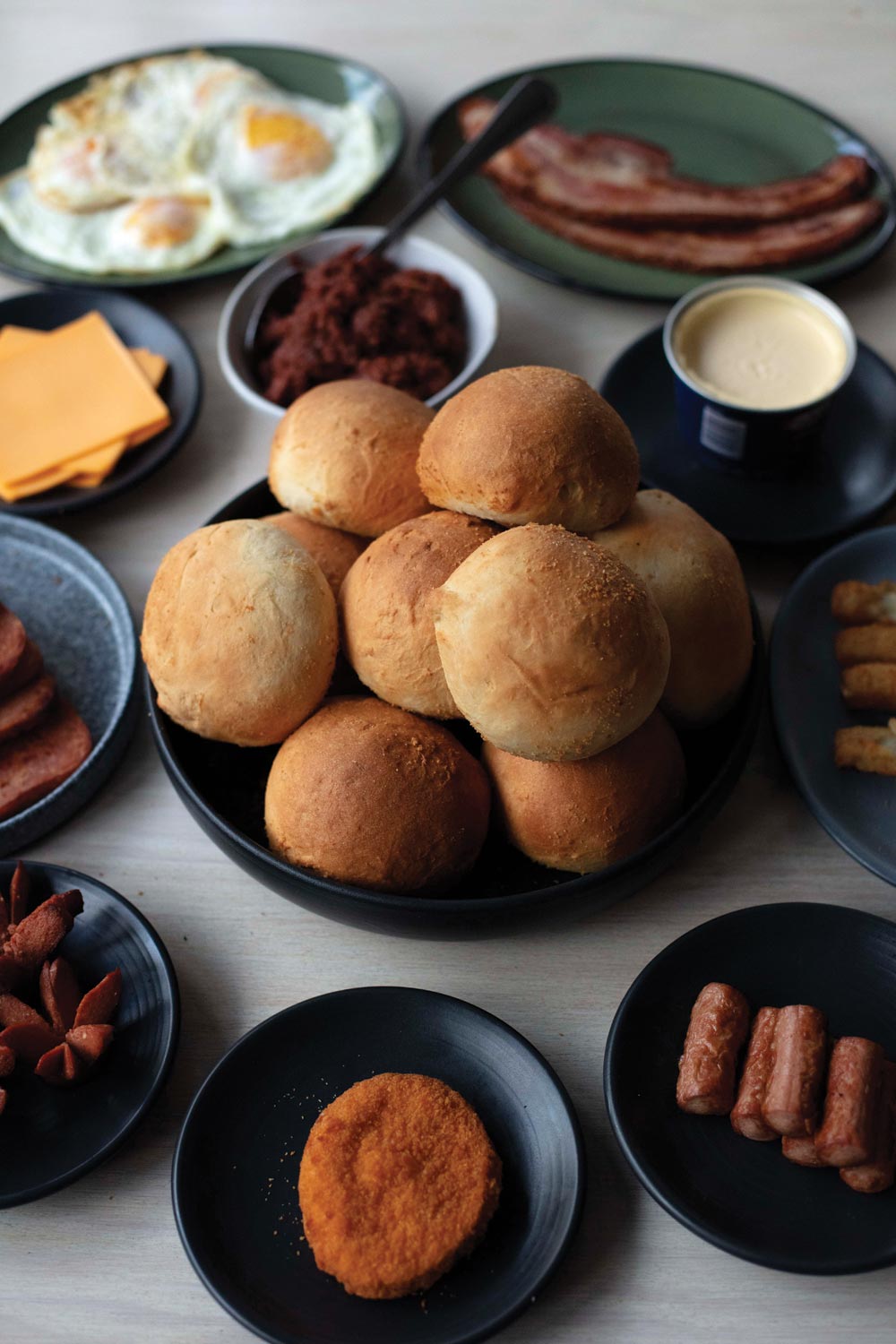
A later chapter covers the company’s origins and then the subsequent accolades and fame it summoned, such as Cailan being named LA’s Rising Star Concept Chef in 2014 and the celebrities who became frequent customers. One familiar recipe is for “The Slut” — a coddled egg on top of a smooth potato purée, poached in a glass jar and served with toasted bread — a dish that Calian said “changed [his] life” after food critic Ruth Reichl wrote that it was “the most decadent breakfast,” forever charting the course of his food truck and later the first brick-and-mortar location.
The rawness unearths during the Q&As between Cailan and Cuerdo, based on a month of interviews that felt “like therapy,” they said. One particular angle never captured in the buzzy headlines or “best of” lists were the long hours put in and the relationships fractured while building Eggslut.
“We went deep. Old wounds, old fears, how to handle success, how to handle heartbreak. I asked about it all. Alvin was an open book. After that intense process, something clicked. The book wasn’t ‘The Eggslut Cookbook’ or even the Alvin Cailan story. It was something greater,” Cuerdo described, adding that she suggested the book’s final title to place the story into the context of “the eyes of a Filipino American intimate with sacrifice and struggle.”
Despite Cailan’s training in fine dining, the cookbook promises to be accessible for any level of cook. “Anyone could cook through this book. You don’t have to be a chef. Nothing is too crazy,” he said. One caveat is that there are instructions on how to build a fire pit to roast a lechon for a backyard party.
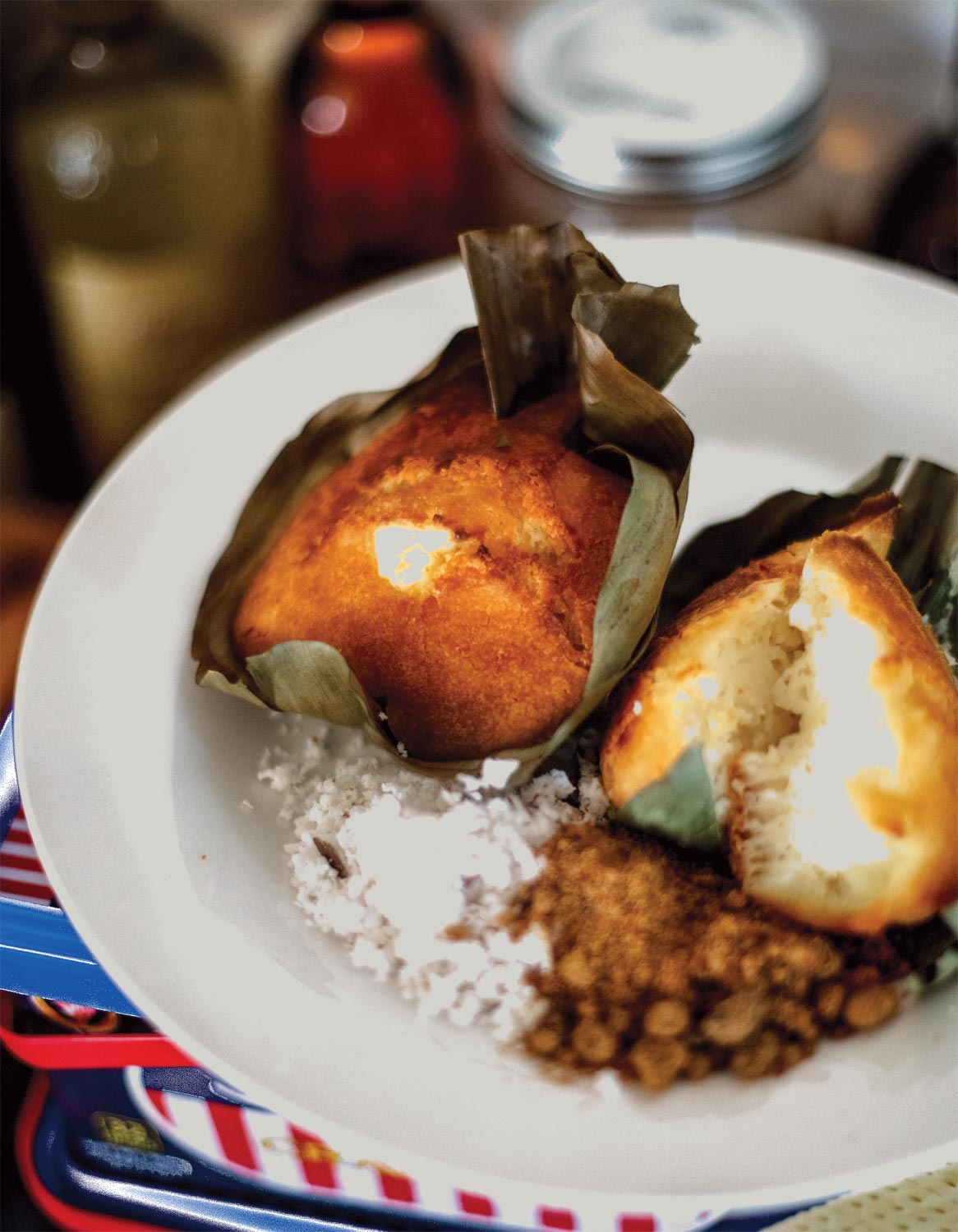
What will resonate with many Fil-Ams, or even children of other immigrant groups, is having to scrape together a meal based on available ingredients as their parents worked. The ingenuity of this amboy left with pan de sal, canned meats, Costco-sized frozen dishes and American condiments comes out in the formula of building the “ultimate pan de sal sandwich; in the cheeseburger lumpia based on memories of sneaking in Kraft Singles as lola rolled the wrappers; or while watching his family caretaker “Auntie Cita” make bibingka (coconut rice cake) with Philadelphia Cream Cheese.
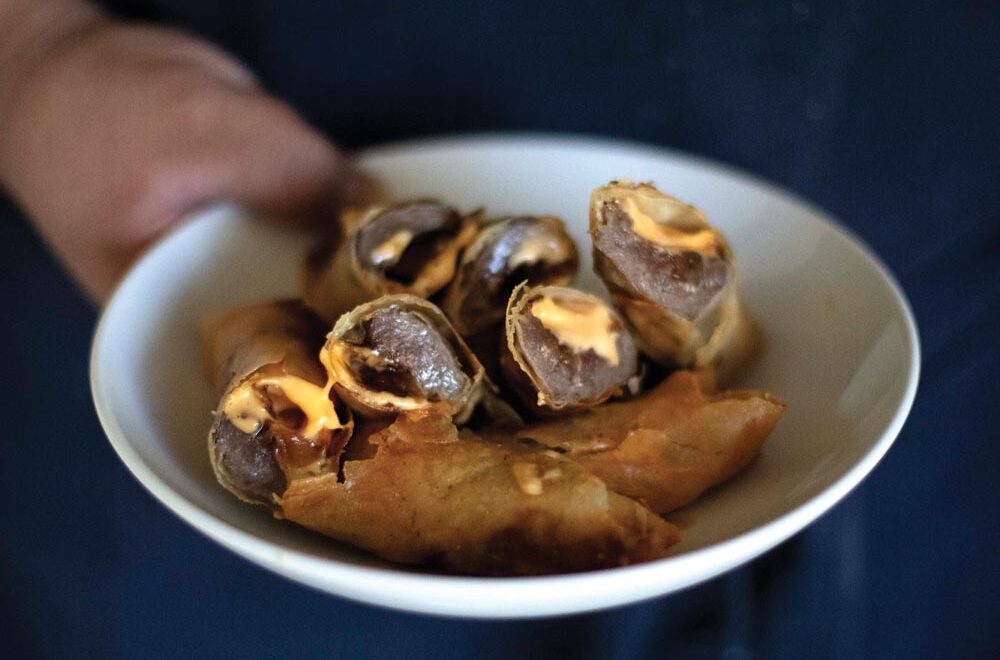
“When I show other first-generation Filipino Americans [these creations], they all relate to them. They have done some things similar and I think that this is a cool angle because you don’t read that in the Filipino books before me,” Cailan said.
What Amboy will look like once indoor service and larger gatherings resume is something to anticipate. For now, it’s bringing the experience home to quarantine chefs, whether through the cookbook recipes or weekly meat supply, or amplifying fellow Fil-Am restaurants nearby.
“There are plenty of options to support local restaurants, but there’s something different when you’re actually supporting your own kababayan, the Filipino Americans who own restaurants,” Cailan said. “If you make that your priority like you would ordering tacos, then I think we’ll be able to at least weather this storm. Just keep us a part of the conversation and don’t forget we exist.”
Amboy Quality Meats & Delicious Burgers is located at 727 N. Broadway No. 117 in LA’s Chinatown. “Amboy: Recipes from the Filipino-American Dream” (August 25) is available for pre-order at nowservingla.com.


